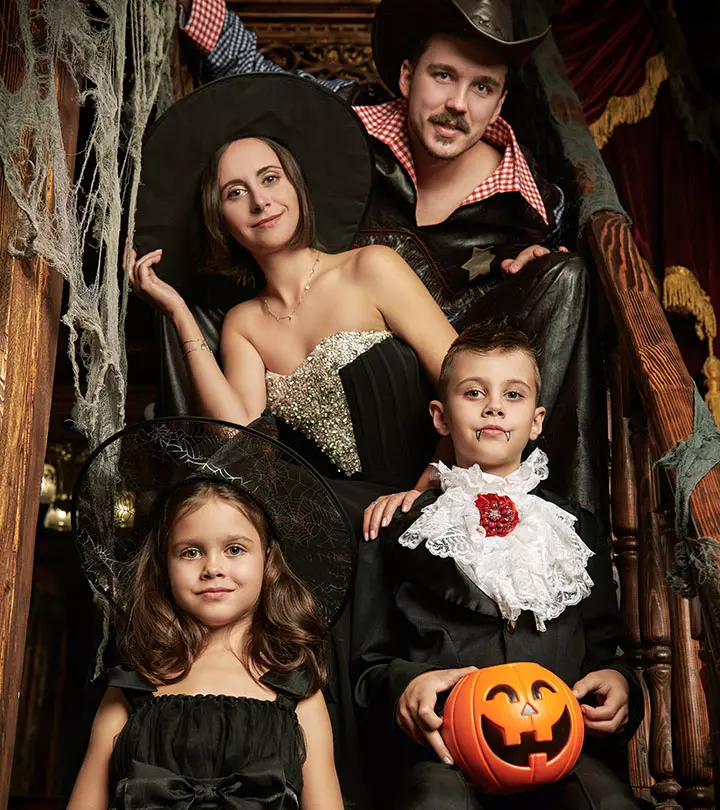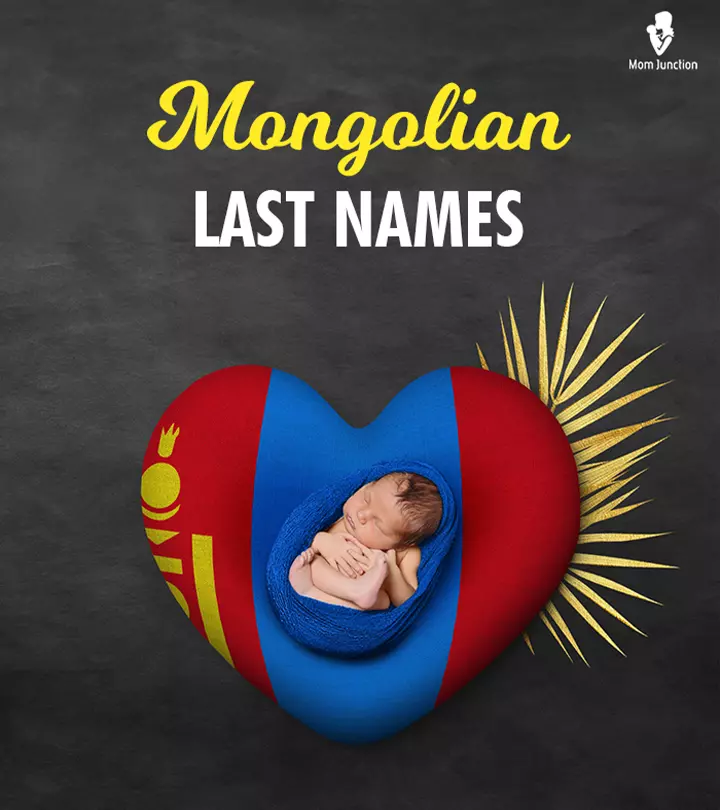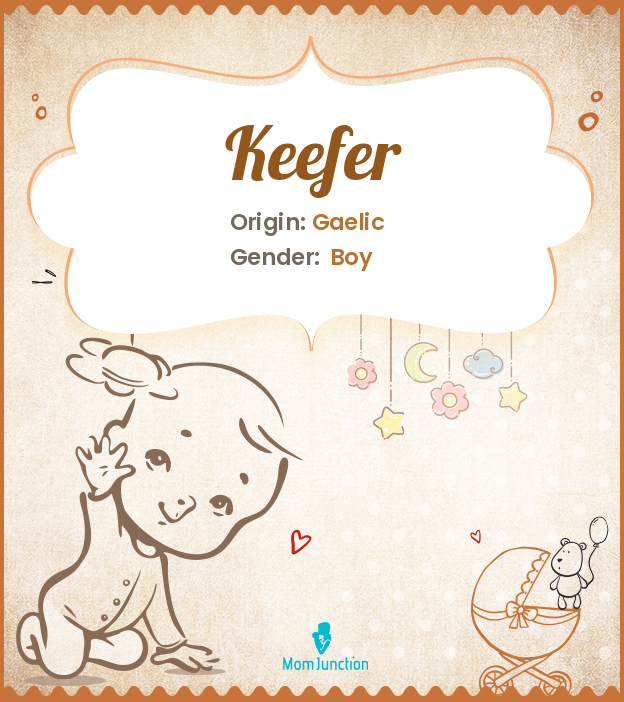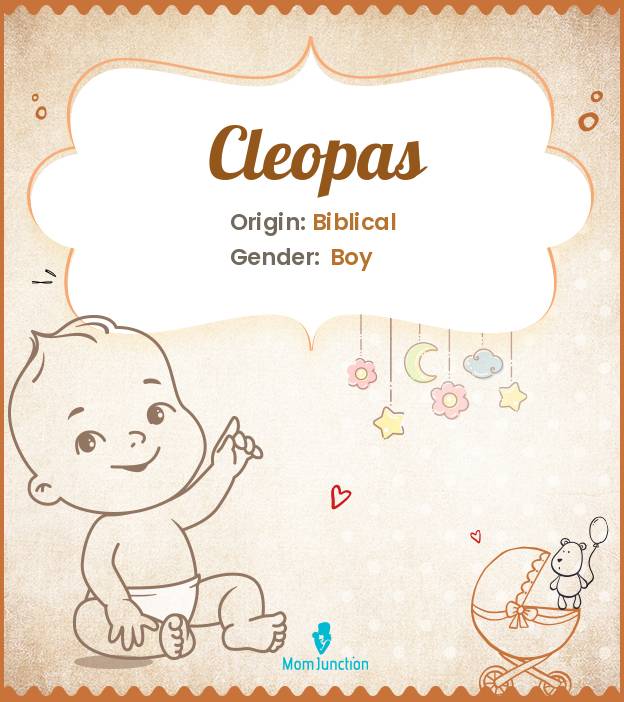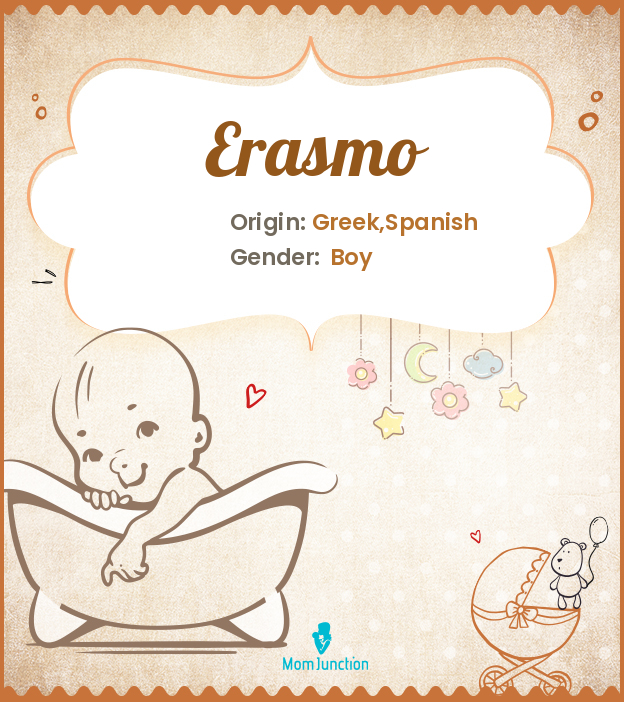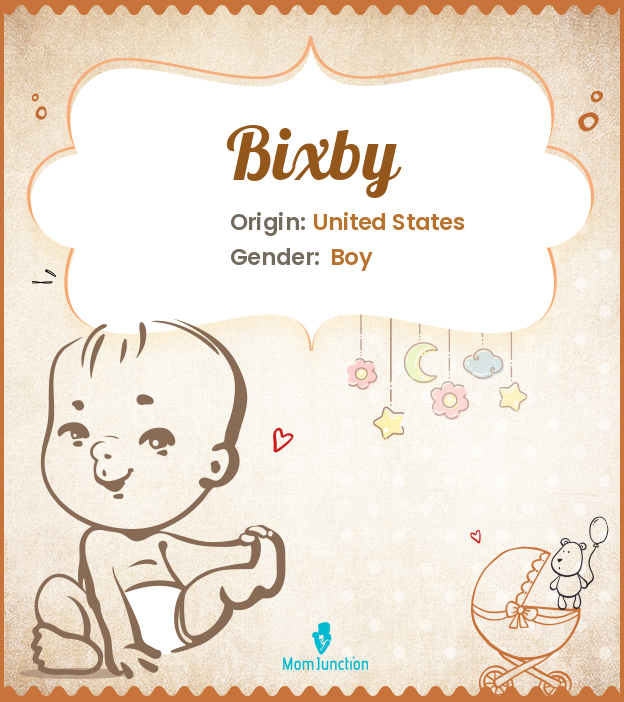
Image: Shutterstock
Indian last names tell a lot about the person and their family background. Usually, their caste, economic status, culture, and occupation are revealed by their last name. Hence, it’s a big deal to know what reputation a person’s last name holds. Last names, especially in India, are passed on from generation to generation. It’s a way to figure out the family tree, which can trace back to ancestors. Some names also denote the place of birth, and hence last names in India are given a lot of importance. If you belong to India or are familiar with Indian culture, you know what we are talking about! Check out our list of the most popular Indian last names, along with their meanings. Each of these names provides a glimpse of the legacy, cultural significance, and history it imbibes.
Key Pointers
- Surnames hold a place of prime importance in India as they indicate a person’s family background.
- Indian surnames, such as Patel or Sharma, reflect regional and cultural heritage.
- Chatterjee, Gadhavi, and Kapoor may be associated with geographical locations such as Bengal, Gujarat, and Punjab, respectively.
- Gandhi, Joshi, and Verma are associated with ancestral occupations.
- Goel, Kohli, Modi, Sachdev, Chabra, and Bedi identify with members of various clans across India.
History And Variations Of Indian Last Names
Indian last names have a long history, dating back to ancient times. They emerged from varying religions, cultures, and communities, not to mention the vast linguistic divide between different parts of India.
Surnames in India can be based on occupation, location, patronyms, matronyms, and caste identifiers. For instance, Sharma is a Brahmin surname denoting a priest, while Patel is an honorific title for a village headman. Bhosale and Shinde are Marathi clan names, while Mahendrakar and Mangeshkar are geographical surnames. Some common caste names include Reddy, Iyer, Chatterjee, Hegde, Pillai, Khattar, and so on.
While the last names are ancient, their use in daily life is a relatively recent phenomenon, introduced during the British colonization. North Indians adapted to the English convention of a first name followed by a last name with relative ease. However, South Indians are still unable to adopt this convention. It is likely because, in most South Indian communities that speak Dravidian languages, the concept of a family name does not exist.
150 Most Popular Indian Last Names
1. Acharya
Acharya is the Brahman Hindu surname. The surname comes from the Sanskrit word ‘acarya’. The term is also applied as a title for a man of learning.
2. Agarwal
Agarwal is a Jain surname. The Agarwals are one of the most prominent mercantile communities of India. The surname comes from the word Agroha, the former capital of the ancient city Agar Sen. One of the most common Indian last names.
3. Ahluwalia
Ahluwalia is a Sikh surname derived from a place name. Ahlu is the name of a village near Lahore.
4. Ahuja
Ahuja is a Sikh surname meaning the ‘descendant of Ahu’. Ahu was the name of an Arora ancestor.
5. Akkineni
Akkineni is a Telugu surname derived from the Telugu and Kannada words akki, meaning rice, and nine, reflecting the country or region. Hence, the surname means someone from the region where rice is cultivated.
6. Amin
Amin is a Muslim surname derived from the Arabic word ‘amin’, which means ‘trustworthy’. The term is used in combination with other names to form compound names.
7. Anand
Anand is a Hindu lineage name derived from the Sanskrit word ‘anada,’ which means joy. It was initially a given name but is now popular as a surname.
8. Anthony
The last name Anthony is a surname popular amongst Christians in South India. It is derived from the personal name Anthony.
9. Arora
Arora is a prominent Indian surname found in Hindi and Punjabi. The name originates from the ancient city of Aror, located in modern Sindh province, Pakistan. It is believed that the name of the city derives from the Hindi word aur, meaning ‘more, also.’
10. Apte
Apte is a Maharashtrian surname found amongst Konkan surnames. It comes from the Marathi word ‘apta’, which denotes the tree Bauhinia tomentose.
11. Arya
Arya is a Hindu surname popular in several communities. It comes from the Sanskrit word ‘arya,’ which means ‘honorable man.’ It is also the name of a Jat clan in Punjab.
12. Azad
Azad is a renowned surname in Bengali and Urdu, of Persian origin. The name means free in Persian.
13. Babu
Babu is a Hindu surname meaning ‘father’. It is derived from the Prakrit word ‘bappa’, a respectful term of address for a man. It is also a term of endearment for a baby boy.
14. Bajwa
Bajwa is a Sikh surname of the Jat tribe. This surname is popular in Northern states of India like Delhi, Punjab and Haryana.
15. Bakshi
Bakshi is a Hindu and Punjabi surname. The surname comes from the Persian ‘bakhshi’, which means ‘paymaster’. Bakshi was originally the title of officials who distributed wages in Muslim armies.
16. Balakrishnan
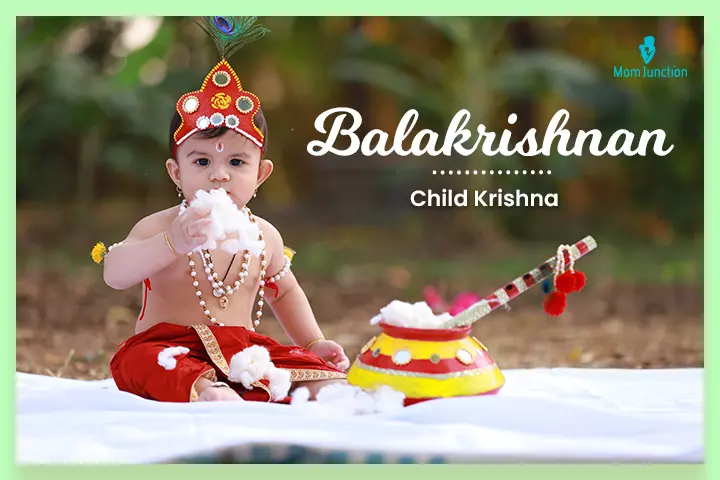
The surname Balakrishnan is derived from the Sanskrit word balakrishna, which means ‘child Krishna’. This surname is common in South India.
 Did you know?
Did you know?17. Bandyopadhyay
Bandyopadhyay is one of the occupational Bengali surnames that derives from the name of the village Bandoghat combined with ‘upadhaya’, meaning instructor or priest.
18. Banerjee
Banerjee is a Bengali surname. Its first element ‘Ban’ is a short form of the village named Bandoghat and the last element ‘jee’, is derived from ‘jha’, which means ‘teacher’.
19. Basu
Basu is a Bengali surname. It comes from the Sanskrit word vasu, which means ‘wealth, gem, and radiance’. The surname Basu is also an epithet of Lord Shiva.
20. Basumatary
Basmati is a Bodo surname from India derived from the Sanskrit Vasumati, an alternate title for the Hindu goddess Bhuma. According to the belief, she is considered the mother of the Bodo people.
21. Batra
Batra is a Punjabi surname based on a clan in the Arora community.
22. Bawa
Bawa is a Sikh surname based on the name of the Jat clan. Bawa is also the title given to the male descendants of the first three Sikh gurus.
23. Bedi
Khatri is a community name. The surname Bedi is based on the name of a clan in the Khatri community. Bedi is derived from the Sanskrit word ‘vedi’, which means ‘one who knows the Vedas’.
24. Bhasin
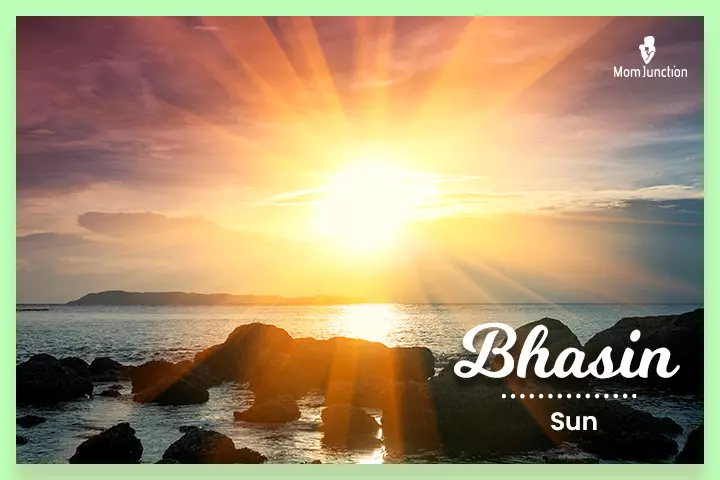
Here is another Sikh surname for you. Bhasin is based on the Khatri community clan. The surname is derived from Sanskrit word Bhasin, which means ‘sun’.
25. Bhatt
The surname Bhatt is based on the name of a subgroup of goldsmiths in Punjab. It means ‘the learned one’ or ‘scholar,’ and is used by Hindu Brahmins and Muslims, particularly in the Kashmiri and Punjabi communities. Many spell it as Bhat or Butt.
26. Biswas
Biswas is a Bengali Kayastha surname. It comes from the Sanskrit word ‘visvasa’, which means’ trust’.
27. Burman
Burman is a Rajbanshi surname for the Sanskrit word ‘varman’, which means ‘protection’. Burman is also the cognate of the North Indian surname Verma.
28. Chabra
Chabra is a Hindu and Sikh surname. It is based on the name of the Arora clan.
29. Chadha
Chadha is a Khatri Hindu surname. It is based on the name of the clan in the Khatri community. The Ramgharia Sikhs have a clan named Chadha.
30. Chakrabarti
The Bengali surname Chakrabarti comes from the Sanskrit word cakravarti, which means ‘emperor’. It also denotes a ruler whose chariot wheels rolled everywhere without obstruction.
31. Chandra
The popular surname Chandra comes from the Sanskrit word ‘candra’, which means ‘pleasant or moon’. It usually occurs as the final element of a compound name. For example- Ramachandra.
32. Chauhan
The surname Chauhan has an ancient prestige. The Chauhan kings ruled in Rajasthan and other bordering states. Prithviraj Chauhan, the famous warrior, is one of the most well-known Hindu kings with this last name. He was the last independent Hindu ruler of the Delhi throne (1).
33. Chawla
Chawla is a Hindu and Sikh surname. It is based on the name of a clan in the Arora community. The name likely comes from the word chawal, meaning ‘rice,’ possibly denoting rice cultivators.
34. Chopra
Chopra is a surname borne by Hindus and Sikhs. It belongs to a clan called Chopra under the Khatri community, found in Indian Punjab and Haryana. The surname is also found among Sikhs from Ramgarhia.
35. Chowdhury
Chowdhury is a hereditary name for the head of a community. The title was originally awarded to people of eminence. It is now a popular surname among both Indian Muslims and Hindus.
36. Das
Das is a Bengali surname. It comes from the Bengali word ‘das’, which means ‘votary’. It is also used as a final element of the compound given names.
37. Dalal
Dalal is a gotra (clan) of Jats community, which is found in the northern part of India. According to Wikipedia, the clan got this name from a king named Dalal.
38. Dara
Dara is a Parsi surname. It is based on the Old Persian royal name Darayavahush, which means ‘possessor’.
39. Datta

Datta is a Bengali and Punjabi surname derived from the Sanskrit word ‘datta’, which means ‘gift’. In the Puranas, the name is associated with the Vaishya caste. In Assam and Bengal, the surname Datta belongs to the Kayastha caste.
40. Dayal
Dayal is the surname of the Kayastha community. Just like the surname Chandra, Dayal also occurs as the final element in a compound name.
41. Debbarma
Debbarma is a Tripuri surname that combines two different Sanskrit names, Dev and Varma. Dev is derived from Deva, meaning God, and Varma, from Varman, meaning armor and protection.
42. Deshmukh
Deshmukh is a Hindu surname found in several communities. The surname is derived from the Marathi word ‘desmukh’, which means ‘district chief’.
43. Deshpande
Deshpande is a Brahmin surname derived from the Marathi word ‘despande’. The term was used for the district accountant of a hereditary office.
44. Deol
The Sikh surname Deol is based on the name of a Jat clan. It comes from the Punjabi word Deol, meaning ‘sacred place’ or ‘temple.’
45. Dewan
The surname Dewan comes from the Arabic word ‘diwan’, which means a royal court or treasury. In the Mughal era, the term Dewan was the highest official in a state.
46. Dey
Dey is an Assamese, Bengali, and Odia surname of different origins. It is considered to have derived from the Sanskrit words deva, meaning God, or deya, meaning fit/proper, for a gift.
47. Dhar
Dhar is a Kayasth surname deriving from the Bengali name ‘dhar’, which means ‘credit’.
48. Dhawan
The surname Dhawan is based on the name of a clan in the Khatri community. It comes from the Sanskrit word ‘dhav’, which means ‘runner’ or ‘messenger’,
49. Dhillon
Dhillon is a Sikh or Jat surname. The Dhillon tribe is one of the most widely distributed Jat tribes in India.
50. Dixit
Dixit is a Brahman surname coming from the Sanskrit word ‘diksita’, priest-performing initiation.
51. Dubey
Dubey is a North Indian surname pronounced as two syllables. It means ‘one who has studied the Vedas’. The surname Dubey is a cognate of Gujarati Dave.
52. Gadhavi
Gadhavi is among the popular Gujarati surnames related to the Charan caste of Gujarat.
53. Gandhi
Gandhi is an occupational surname that means ‘perfume seller’ in Indic languages. In Gujarat, ‘gandha’ means ‘pharmacist’ and ‘grocer.’ The surname is synonymous with Mahatma Gandhi or Mohandas Karamchand Gandhi, the renowned political and spiritual leader instrumental in India’s freedom struggle known for his policies of truth and non-violence (2).
54. Garg
Garg is a Bania and Jain surname. Both Oswal Banias and Agarwal Banias have clans named Garg. It was the name of an ancient Hindu sage.
55. Gayakwad
Gayakwad is a surname from Marathi, referring to ‘gaay’ as cow and ‘kavad’ meaning door.
56. Ghosh
Ghosh is a Bengali surname. It is a Kayasth occupational name coming from the Sanskrit ‘ghosa’, which means ‘cowherd’.
57. Gill
Gill is a Punjabi surname. It comes from a Punjabi word ‘gil, which means ‘prosperity’. There is also a Jat tribe with the same name.
58. Goel
The Indian surname Goel is based on the name of a clan of the Agarwal community. The surname Goel is popular in the northeastern states of India.
59. Gokhale
Gokhale is a Hindu surname found among Konkanasth Brahmins. It comes from the Marathi word ‘gokhla,’ which means ‘cow eye.’ The surname is most prominently associated with Gopal Krishna Gokhale, a famous freedom fighter, politician, and social reformer known for founding the Servants of India Society (3).
60. Goswami
Goswami is one of the Hindu Brahmin surnames. It derives from the Sanskrit word ‘gosvami’, which means religious mendicant.
61. Grover
Grover is a Hindu and Sikh surname. You will find many Punjabis with this surname.
62. Gupta
Gupta is a Jain and Bania surname coming from the Sanskrit word ‘gupt’, which means ‘protected’. It is an ancient surname of India.
63. Haldar
Haldar is a Brahmin surname coming from the Sanskrit word ‘haladhara’, which means ‘one who holds a plow’. It is an epithet of Balarama.
64. Iyer
Iyer is a Hindu-Brahmin surname popular in Tamil Nadu region of India. The Iyer Brahmans are an important community from Tamil Nadu.
65. Jain
The surname Jain derives from the Sanskrit word ‘jaina’, which is derived from Jina or the ‘follower of Jina. It means ‘triumphant’.
66. Jha
The surname Jha is popular in Northern India. It is the reduced form of the Sanskrit word ‘upadhaya’, which means’ teacher’.
67. Joshi
The surname is a short form of the Sanskrit surname ‘jyotshi’, which means astrologer. It is borne by Brahmins.
68. Kamble
Kamble is a Marathi and Konkani surname from the Sanskrit Kambala, meaning blanket. It is since representing the occupational name for a weaver of blankets or people carrying blankets.
69. Kapadia
Kapadia is a surname popular in Rajasthan, Bombay, and Gujarat. It comes from a Parsi word ‘kapad’, which means ‘cloth merchant.
70. Kapoor
Kapoor is a Sikh surname of the Khatri community. It is a derivation of a personal name ‘karpura’, which means ‘camphor’.
71. Karmakar
Karmakar is an occupational surname in Assamese and Bengali that refers to a blacksmith or a person who works with iron.
72. Kashyap
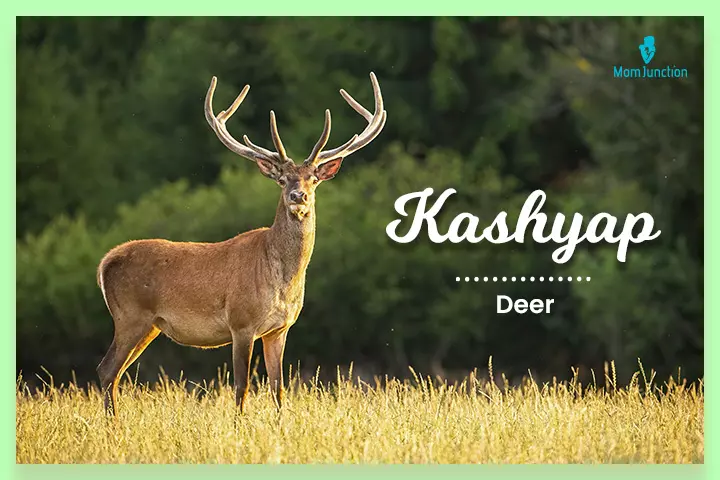
Kashyap is a Brahmin surname referring to one of the Gotras. Kashyap was the name of Hindu sage. It means ‘tortoise’ and ‘deer’.
73. Kaur
Kaur is a surname used by Sikh and Punjabi women. Kaur is used either as the final element of a personal name or as the last name.
74. Khan
Khan is a surname commonly found in Urdu, Pashto, and Bengali, which means king or ruler. The name is probably of Mongolian origin, but it is also used in many other languages.
75. Khanna
Khanna is a Sikh surname based on the clan found in the Khatri community. They are said to be the descendants of Khan Chand.
76. Khatri
The surname Khatri is a synonym for Kshatriya. Kshatriya is one of the five major castes in Hinduism.
77. Khatun
Khatun is a prominent Indian surname in many languages like Bengali, Hindi, Assamese, Odia, and Nepali. The name is derived from the namesake Persian title, meaning lady or noblewoman.
78. Khurana
The Sikh surname Khurana is based on the name of a clan in the Arora community.
79. Kohli
Kohli is a Hindu and Sikh surname based on the name of a clan in the Khatri community.
80. Korrapati
Korrapati is a typical Indian surname predominantly found within Telugu-speaking areas. It is derived from the name of a place called Korra/Korrapalem combined with ‘Pati’ meaning ‘belonging to.’ Hence, it means a person from Korra/Korrapalem.
81. Kulkarni
Kulkarni is a patronymic Marathi surname meaning ‘village clerk’. Kulkarni was a village official under the village headman.
82. Kumar
The surname Kumar is found in several Indian communities. It is the epithet of god Kartikeya, the son of Lord Shiva. Kumar also occurs as an element of a given name.
83. Laghari
Laghari is another common Indian last name. This tribal name is related to the Laghari tribe in Balochistan.
84. Lal
Lal is a Hindu surname common in several communities. It comes from a Sanskrit word ‘lala’, which means ‘darling’. It is an epithet of the God Krishna. It is also one of the popular Indian last names.
85. Laskar
Laskar is a Bengali and Assamese occupational surname derived from the Persian Lashkar, meaning ‘army,’ ‘sailor,’ or ‘soldier.’
86. Madan
The surname Madan comes from an ancestral personal name Madan. It means ‘god of love’. It is also the name of an Arora clan.
87. Mahajan
The Bania surname Mahajan comes from the Hindi word ‘mahajan’, which means ‘banker’ or’ money lender’. The Sanskrit meaning of Mahajan is ‘great person’.
88. Mahto
Mahto is an alternate transcripted surname of Mahato derived from the Sanskrit Mahat, meaning great or large. This name was generally given to the village head and the affluent farmers. It is a common surname in Hindi, Assamese, Bengali, Odia, and Nepali.
89. Majumdar
Majumdar is a famous Bengali surname of Arabic and Persian origin. The name means a keeper or records or archivist.
90. Malhotra
Malhotra is a surname based on the clan in the Khatri community. It is a variation of Mehrotra.
91. Mallick
Mallick is both a Hindu and a Muslim surname. It comes from an Arabic word ‘malik’, which means king.
92. Mandal
Mandal is a surname from the title given to the village head or the Sanskrit word mandala, meaning a ‘circle,’ ‘wheel,’ ‘disk,’ or ‘halo.’ This name is commonly found in Bengali, Hindi, Assamese, Odia, Marathi, and Nepali.
93. Mangal
Mangal is a Hindu surname derived from the Sanskrit surname ‘mangala’. The Agarwal Banias have a clan called Mangal. The surname means ‘auspicious’.
94. Mani
Mani is the reduced form of the South Indian surname Subramanian. It is also a given name in Kerala.
95. Mannan
Mannan is a Hindu surname meaning ‘king’ in Tamil. Mannan is also a Muslim surname. It is based on the Sanskrit word ‘mannan’, which means ‘the bountiful’.
96. Mehra
Mehra is a Hindi and Punjabi surname with multiple origins. When derived from the Middle Persian mihr, it means ‘friendship’ or ‘sun.’ While in Punjabi, it means ‘master’ or ‘chief.’
97. Mehta
Mehta is a Rajasthani surname-meaning chief in modern Indian languages. In Gujarati, it means ‘teacher and accountant’.
98. Mhasalkar
Mhasalkar is an Indian surname derived from the Indian town of Mhasla in Maharashtra, India.
99. Mishra
Mishra is a Hindi and Marathi surname that means mixed, mingled, and honorable in Sanskrit. Misra is the alternate transcription of this name.
100. Modi
The last name Modi is borne by Gujarati and Parsi people. There is a clan called Modi among the Oswal Banias.
101. Mukherjee
The surname Mukherjee is the Sanskrit version of Mukhopadhyaya. It is composed of ‘mukhya’, which means principal and ‘upadhaya’, which means teacher.
 Quick fact
Quick fact102. Naidu
The surname Naidu occurs in communities of Andhra Pradesh. It is composed of a stem word ‘naya’, which means leader or chief. The suffix ‘du’ is a third person masculine suffix in Telugu.
103. Nagarkar
Nagarkar is an Indian surname of Marathi origin that derives from the town of Nagar in the state of Maharashtra, India.
104. Narang
Narang is a toponym surname in Hindi, the name of a Pakistani town located in undivided India.
105. Nayak
Nayak is an Indian surname derived from the Sanskrit Nayaka, meaning ‘a hero’ or ‘leader.’ Two variants of this surname include the equally popular Naik and Nayaka.
106. Nibhanupudi
Nibhanupudi is a surname of Telugu origin deriving from the name of a village in Andhra Pradesh, India.
107. Panda
Panda is an Odia and Bengali surname derived from the Sanskrit word Panda, meaning ‘wisdom,’ ‘knowledge,’ and ‘learning.’
108. Pandey
The surname Pandey comes from the Sanskrit surname ‘pandita’, meaning scholar. It denotes a Brahmin engaged in teaching or cooking.
109. Parekh
Parekh is the variant of the name Parikh. It means ‘assayer’ in Gujarati. The Porwal Banias and Oswal have clans called Parekh.
110. Patel
Patel is a common Gujarati surname. It means the ‘village headman’ in Gujarati. The surname is used by the Koli caste of Gujarat, along with Patidars, Muslims, and Parsis.
 Quick fact
Quick fact111. Pathak
Pathak is an Indian surname found commonly in Hindi, Marathi, Assamese, Bengali, Gujarati, Punjabi, and Nepali. It originates from the Sanskrit word Pathaka, meaning reader or learner.
112. Pawar
Pawar is a Hindi and Marathi surname variant of Parmar. Parmar, in turn, is derived from the Sanskrit para mara, meaning slayer of enemies.
113. Pradhan
Pradhan is an Indian surname within Odia, Bengali, Hindi, Marathi, Assamese, and Nepali languages. The name originates from the Sanskrit word Pradhana, meaning chief or head.
114. Prasad
Prasad is a common Indian surname derived from the given name Prasad, meaning ‘bright,’ ‘clear,’ ‘gracious’ or offering in Sanskrit. Prasad is also typically associated with the food offering made in religious worship.
115. Pratap
Pratap is a Hindu surname derived from the namesake given name. The name reflects ‘heat,’ ‘splendor,’ and ‘glory’ in Sanskrit.
116. Puri
The name Puri is based on the clan in the Khatri community. The word ‘puri’ means ‘small town’ in Punjabi.
117. Purohit
Purohit is a Brahmin surname. The term denotes the family priest of a Hindu community. It means ‘one placed foremost’.
118. Rana
Rana is a royal-sounding surname in Bengali, Odia, Gujarati, Hindi, Punjabi, Marathi, Nepali, and Urdu. It is derived from Sanskrit and refers to a king.
119. Ranganathan
Ranganathan is a Hindu last name meaning ‘lord of mirth’. It is an epithet of Lord Krishna.
120. Ray

The surname Ray is a variant of Rai. It comes from the Sanskrit word ‘raja’, which means ‘king’. It is also the name of the Bunt community.
121. Rao
The last name Rao is popular in Orissa and other western states of India like Maharashtra, Goa, and Andhra Pradesh.
122. Reddy
Reddy is a caste name in Southern India. The people of the Reddy caste are known for good administration. Their other profession besides administration is farming.
123. Roshan
Roshan is an Indian surname in Hindi, Urdu, Marathi, Nepali, Bengali, Punjabi, and Gujarati. The name originates from Persian and means ‘light’ or ‘bright.’
124. Sachdev
The last name Sachdev is based on one of the clans in the Arora community. It means ‘true god’.
125. Sahu
Sahu is a prominent Indian surname for a merchant, money-lender, or banker in Sanskrit. Sahoo is another alternate spelling variant of this surname.
126. Saini
Saini is an Indian surname derived from the name of an Arora clan. The name is pronounced SAY-NEE.
127. Sardar
Sardar is a surname derived from Persian and it means ‘chief leader.’ It is found in Bengali, Hindi, and Urdu languages and includes spelling variants like Sarder, Serder, and Serdar.
128. Sarkar
Sarkar is a Bengali and Assamese surname derived from the Persian name Sarkar, meaning ‘lord’,’ supervisor,’ or ‘overseer.’
129. Sawant
Sawant is a Marathi surname derived from the Sanskrit word Samanta, meaning ‘universal,’ ‘complete,’ or ‘entire.’
130. Saxena
Saxena is the name of one of the subgroups of the Kayastha community. It is also the title awarded to them by the kings of Srinagar.
131. Seth
Seth is a Parsi and Jain last name. It is popular amongst mercantile communities. Seth means ‘banker or merchant’.
132. Shah
Shah is both a Hindu and Muslim surname. It is a Persian royal title, which means ‘emperor’. It is also a Jain and Gujarati name meaning ‘merchant’.
133. Shankar
Shankar is a famous Indian surname commonly found in Hindi, Telugu, Tamil, and Kannada. It originates from the name Shankar, derived from the Sanskrit Shankara, meaning auspicious or lucky. It is also one of the names of the Hindu god Shiva.
134. Shastri
Shastri is a Hindi and Marathi surname derived from the Sanskrit word Shastrin meaning a person well-versed in the ancient Indian texts known as Shastras. Subsequently, the surname came to mean scholar.
135. Sharma
The last name Sharma means ‘joy or shelter’. It is regarded as a prestigious name by the Indians.
136. Shinde
Shinde is a prominent Marathi surname derived from the name of an Indian dynasty from Maharashtra.
137. Singh
Singh is a Hindu Kshatriya surname, which is now being adopted by several communities. It means ‘hero’ or ‘eminent.’ Singh also denotes ‘lion,’ as used by the Sikh community. Along with Kaur, it is one of the two surnames used by members of the community to signify their gender. Singh is used by men, while Kaur is used by women, followed by their clan or caste names (4).
138. Sinha
Sinha is an Indian surname common in Hindi, Bengali, Assamese, and Nepali. The name is derived from the Sanskrit simha, meaning a ‘lion.’
139. Suryavanshi
Suryavanshi is a Marathi surname that originates from the Sanskrit words Surya and Vansha. While Surya means ‘sun’ and vans means ‘clan’ or ‘lineage,’ Suryavanshi refers to a person from the sun clan or lineage.
140. Tamboli
Tamboli is an Indian surname popular in the Marathi language. It comes from the Sanskrit word ‘Tambula,’ meaning betel leaves. The names were originally given to people who grew or sold them.
141. Thakur
The name Thakur means ‘deity’ or ‘lord’. The last name Thakur is commonly associated with Kshatriyas but is also found among the Brahmins and other communities.
142. Thapa
Thapa is a famous Indian surname in Nepali, Bengali, Assamese, Hindi, and Odia. This name comes from the ancient military designation used during the Khasa Kingdom, which was prominent in South Asia from the 11th to 14th centuries.
143. Tiwari
Tiwari is a surname variant of Trivedi or Tripathi in Hindi, Marathi, Bengali, Punjabi, Odia, and Nepali. It originates from the Sanskrit Tripathi, meaning ‘one who has studied three Vedas.’
144. Tripathi
Tripathi is an Indian surname commonly found in Hindi, Odia, Marathi, Bengali, and Punjabi. The name derives from the Sanskrit word ‘tripathin’, which means ‘one who has studied the three Vedas.’
145. Tyagi
Tyagi is a typical Hindi surname derived from the Sanskrit origin, meaning ‘leaving/abandoning’ or ‘sacrificing.’ The surnames are believed to have originated from people who had left behind their traditional practice of agriculture in favor of learning and teaching-based occupations.
146. Vaidya
Vaidya is a Marathi occupational surname derived from Sanskrit, meaning ‘a physician’ or ‘a doctor.’
147. Varma
Varma is a surname common in North India. It comes from the Sanskrit word ‘armor’, which means ‘protection’. It was initially used only by the Kshatriya caste, but is now adopted by non- Kshatriya communities as well.
148. Vemulakonda
Vemulakonda is a surname in Telugu, indicating a person from the city of Vemula in Andhra Pradesh, India.
149. Waghmare
Waghmare is a Marathi surname formed by the different Marathi words vagh, meaning ‘tiger,’ and marne, meaning ‘to kill’. Essentially the name means ‘a tiger killer.’
150: Zacharia
Zacharia is a Hebrew surname popular amongst Christians in Kerala. It is also used as a first name among the families of Kerala. It means ‘God has remembered.’ Zakaria is the Muslim variant of this surname with the same meaning.
Discover More Names
When you have to choose a name for your baby, a few hundreds of names may not be just enough. Keep digging our mine of baby names until you find that one precious gem.
Frequently Asked Questions
1. How do Indian first and last names work?
Naming practices change depending on a person’s faith and region of origin in India. First names in India are mostly the given names at the time of birth. And in some Indian communities, the first letter is chosen by a priest or religious head depending on the date and time of birth. The name is then derived from the letter. Last names are generally the father’s name or paternal family name.
2. Why are Indian last names so long?
Some people desire to add their grandfather’s and father’s first names to their given names and family names, which may result in a long last name. Further, some South Indian regions have a custom of adding four names representing their ancestors or family lineage.
3. How do newly married Indian brides get new last names?
After marriage, an Indian bride can choose to use her husband’s family name. Alternatively, she can continue with her last name as earlier.
4. How do Indian last names vary across different cultures and regions?
India is a land of diverse cultures, with each region having its own language and dialects. Therefore, an Indian last name belonging to one region may have several variations across the country. Variations of some popular Indian surnames are Ayyer for Iyer, Ahooja for Ahuja, Tiwary for Tiwari, Mahato for Mahto, and more.
5. How to choose an Indian last name for a baby?
In most Indian communities, the last name chosen for a baby belongs to the father. In some cases, the mother’s surname may also be chosen. However, in South Indian communities, a fixed family name is not shared. Here, a family’s ancestral origins, the father or grandfather’s first name, and/or a caste name are commonly used as identifiers, with the personal name appearing last. So, if you choose an Indian last name for your baby, keep your family’s cultural background in mind.
The last name could have a significant influence and reveal many details about a person and their familial history. Hence, it is not uncommon for some people to refer to you by your last name. Moreover, with a host of cultural variations in India, you may encounter numerous Indian last names famous worldwide. It is nearly impossible that anyone could not have heard popular Indian last names such as Sharma, Kapoor, Singh, Reddy, Khanna, etc. Glance through our list to pick a few cool last names from India and understand their origin.
Infographic: Most Popular Indian Last Names
Indian last names give a peek into the person’s family background and are often associated with their cultural roots. Hence knowledge about these names can help you know about the diverse Indian population and their history. So, here are a few of the most common and widely known ones.
Some thing wrong with infographic shortcode. please verify shortcode syntax
References
- Dr. Satyendra Singh et al.; (2025);The Legends of Prathviraj Chauhan.
https://ijrpr.com/uploads/V4ISSUE3/IJRPR10678.pdf - Champions of Human Rights Mahatma Gandhi (1869 –1948).
https://www.youthforhumanrights.org/voices-for-human-rights/champions/mahatma-gandhi.html - Profile of Gopal Krishna Gokhale.
https://cmsadmin.amritmahotsav.nic.in/event-detail.htm?32703 - Sikh Names and Surnames – Principles and Practices – A Viewpoint.
https://www.sikhmissionarysociety.org/sms/smsarticles/advisorypanel/gurindersinghsacha/sikhnamesandsurnames/
Community Experiences
Join the conversation and become a part of our nurturing community! Share your stories, experiences, and insights to connect with fellow parents.
Read full bio of Rajni Chhabra
Read full bio of Arshi Ahmed
Read full bio of Srija Chanda Burman
Read full bio of Praggya Joshi









